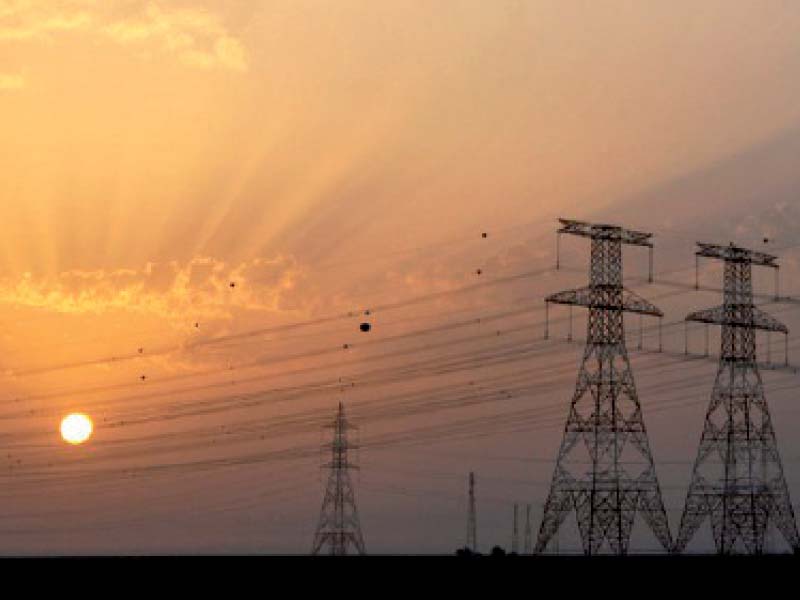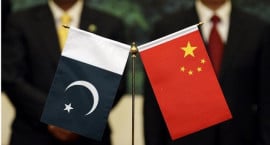
The federal government has turned down a demand of the Sindh government that asked the Centre to give up the right given to National Transmission and Despatch Company (NTDC) and power distribution companies for dispute resolution and litigation in renewable energy projects under the new Alternative and Renewable Energy (ARE) Policy 2019, terming the demand ‘unconstitutional’.
Now, the Sindh government may take up the issue with the Council of Common Interests (CCI), which has representation from all provinces, in the upcoming meeting when the ARE Policy 2019 would be tabled for approval.
Sources told The Express Tribune that the remaining issues had been settled between the federal and Sindh governments but the issue related to directing NTDC and distribution companies to give up their right to the dispute resolution process and litigation could not be settled.
They said the condition had no relevance to power generation under the ARE Policy and could not be agreed upon because of being against the spirit of law and constitution.
ARE Policy 2019 had been presented to the CCI for approval. Governments of Sindh, Khyber-Pakhtunkhwa (K-P) and Punjab voiced same concerns and observations over the draft policy.
The CCI considered the summary dated November 26, 2019, submitted by the Ministry of Energy (Power Division), and approved it in principle subject to incorporating observations of the provincial governments.
It was also decided that in the event of any unresolved observation by any province, the policy should be re-submitted to the CCI.
The Power Division also held meetings with the provincial governments to address their concerns and observations. The division said it showed maximum flexibility within the ambit of the constitution and law to accommodate concerns of the provincial governments.
The Sindh government raised 10 observations for incorporation into the ARE Policy 2019.
Deliberations were held with the government of Sindh for reaching consensus on the observations. Consensus was reached on five observations whereas the province withdrew two observations.
However, the Sindh government demanded that the distribution companies and NTDC would not decline any application or engage in litigation against any application of B2B, net metering, wheeling and distributed generation without the written concurrence of the Alternative Energy Development Board (AEDB) steering committee constituted under the policy.
Sources said the federal government said this part of the observation could not be agreed upon as it was not legally tenable, since the distribution companies and NTDC were separate licence holders and the AEDB steering committee could not have overriding powers over these entities.
Moreover, it is an operational issue and does not relate to contents of the ARE Policy. The steering committee is not a regulatory body for other power sector entities.
They said observations of the K-P government had been addressed to its satisfaction by the Power Division after holding several meetings.
Observations of the government of Punjab were also deliberated upon and the province requested for notifying the ARE Policy 2019 at the earliest.
The federal government is extending support for the production of renewable energy under the policy. This will help promote competitive pricing and improve the energy mix, which will lead to a reduction in electricity tariffs.
Though coal and liquefied natural gas (LNG) have been added to the energy mix to slash overall electricity prices, they are still higher. Owing to the higher prices, the government is compelled to dole out billions of rupees in subsidy every year.
At present, the country is facing power outages, mainly because of poor energy mix. Energy prices are high and consumers cannot pay, which is the reason many resort to power theft. The government is following a formula of paying higher prices and getting more electricity. So, the country has power but those areas where losses are high the consumers cannot enjoy full supply.
Lower energy prices will help to address the issue of power theft and circular debt that has plagued the entire energy chain.
Published in The Express Tribune, July 5th, 2020.
Like Business on Facebook, follow @TribuneBiz on Twitter to stay informed and join in the conversation.

1728208577-0/Tribune-Pic-(1)1728208577-0-165x106.webp)
1721987069-0/diddy-tupac-(1)1721987069-0-165x106.webp)














COMMENTS
Comments are moderated and generally will be posted if they are on-topic and not abusive.
For more information, please see our Comments FAQ